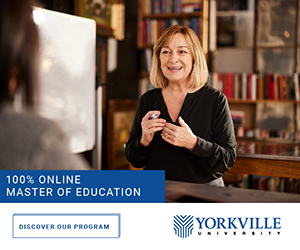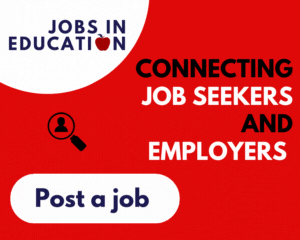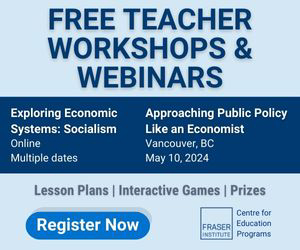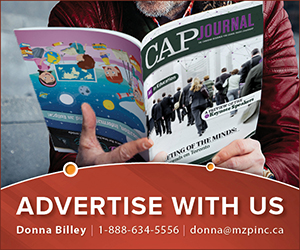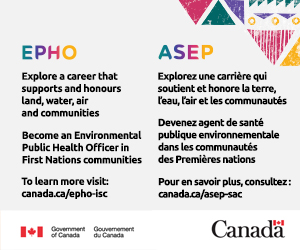Oh, yes, we are very serious indeed. We’d love to share why.
For many people, the idea of delivering career-related learning during elementary schooling is highly controversial. We agree that such controversy requires an adequate response about why elementary education should be concerned with career. Surely elementary education is about teaching and learning for the development of children rather than developing children for a career? Clearly, we should not be expecting elementary age children to commit to which jobs they see themselves applying for when they reach adulthood. However, in this article we hope to take you beyond thinking of career in terms of being linked with careers guidance and the making of choices during secondary education about post-secondary destinations and work. In doing so, we highlight the many advantages of including career-related learning in elementary schools, and most importantly, reveal how well aligned career-related learning actually is to the typical elementary school teaching and learning mission.
We’d like to begin by defining what career-related learning is!
What is career-related learning?
To better understand career-related learning, it is useful to start with the term career, to see beyond jobs and realize the breadth and depth of what career consists of. Career is about life, learning, and work. Therefore, career concerns everyone, is for everyone, and encompasses the learning we undertake from birth throughout life. Career-related learning includes the activities undertaken in elementary schools that provide students with a diverse range of experiences and opportunities to learn about themselves (Schleicher, 2018). Career-related learning increases the focus on the learning and skills students will need to help them through education and beyond and deepens students understanding of how such learning helps them to lead healthy, harmonious, and fulfilling lives (Cahill & Furey, 2017). In summary, career-related learning helps students to develop a range of foundational skills that support both their academic journey and their life journey.
You may still feel a sense of foreboding- what is required? Am I being asked to squeeze yet more into the school curriculum? How will my teachers feel about all of this?
How much effort is required to provide effective career-related learning?
As an educational leader, you may be pleased to learn that career-related learning can be successfully implemented with limited resources and budgets and yet still be an extremely worthwhile learning process. Many provinces across Canada have areas in the existing curriculum carved out for career-related learning, so you should easily find helpful guidance from the policy documents of your jurisdiction. While most career-related activities do focus on the needs and outcomes of individuals, it is important to acknowledge that effective career-related learning is reliant on the community and family context. Career-related learning does not take place in a vacuum! This prompts elementary school leaders to think of new and innovative ways to engage the community, for example by developing relationships with employers, community groups, and parents who can all contribute to a child’s understanding of life, learning, and work. Engaging with such partners can feel daunting and time consuming. However, the fresh perspectives and opportunities for rich learning for your students are worthwhile outcomes. A further beautiful aspect of career-related learning activities is the ease with which they also support all other areas of subject learning in school.
What benefits can career-related learning bring to my students?
Childhood is an important time during which children begin to think about the future. It is during this phase of life that students develop personal autonomy, a commitment to learning, and the competencies that will help them be successful in life. This process of growth reinforces children’s confidence and their ability to work collaboratively with others, while developing independence and self-efficacy. As a principal, it is reassuring to know that career-related learning helps students to become more engaged in thinking about their longer-term futures, which underpins their preparation for successful transition to high school (Council for Minsters of Education Canada, 2017).
Important takeaways to consider
- Though we typically associate transitions with students moving between elementary school, through to high school and beyond, it is important to also consider the more frequent transitions that students make between grades. Equipping students to navigate transitions is important at all stages of their educational journey.
- As a principal, your parent cohorts are a really important source for you to tap into. They have a vested interest in the success of what happens in school as it directly affects their children. However, not all parents and care givers are confident in what they are able to contribute, and it is important to find some small ways to make them feel valued. Importantly, this may open opportunities for you to undertake career-related learning information sessions with your parents!
- Across Canada, career-related learning falls broadly into three strands (Godden et al., in press). Some provinces and territories have embraced a kindergarten to grade 12 (K–12) approach to career education. In other areas of the country, career education begins to emerge in grades 5 and 6, and other regions do not appear to have any formal career education currently in place at the elementary level. Where there are formal curricula, these provide useful pointers to worthwhile career-related learning that are easily adaptable and transferable to many contexts. Subsequently, if you are in a jurisdiction that that has more limited curriculum, it is worth examining what is happening in other parts of Canada to support your career-related learning practices.
- Career-related learning matters! When students engage in a wide range of experiences in different contexts and environments, they see a variety of new opportunities and develop their knowledge and skills. Importantly, career-related learning recognizes that students are on a journey through their learning and life that will include work, family, friendships, recreation, and play. Each child’s journey matters, is complex, and needs to be effectively supported.
References
Cahill, M., & Furey, E. (2017). The early years career development for young children: A guide for educators. CERIC. https://ceric.ca/publications/the-early-years-career-development-for-young-children-a-guide-for-educators/
Council of Ministers of Education Canada. (2017). CMEC reference framework for successful transitions. https://www.cmec.ca/Publications/Lists/Publications/Attachments/372/
CMEC-Reference-Framework-for-Successful-Student-Transitions-EN.pdf
Godden, L., Moore, N., Nesbitt, H., & Merchant, S. (2024). Exploring possibilities! Journeying through career-related learning in grades 4-6: A teaching toolkit. CERIC. https://ceric.ca/possibilities
Organisation for Economic Co-operation and Development. (2018). Preparing youth for an inclusive and sustainable world: The OECD PISA global competence framework. OECD. https://www.oecd.org/education/Global-competency-for-an-inclusive-world.pdf
ABOUT THE AUTHORS:
Lorraine Godden PhD is a Senior Partner of Ironwood Consulting and a Faculty Lead in Yorkville University’s Educational Master’s program.
Nicki Moore is a Senior Lecturer in Career Development at the International Centre for Guidance Studies at the University of Derby in the UK where she leads the Centre’s programme of continuing professional development.
Heather Nesbitt PhD is an educator, researcher, and mother. She is an Adjunct Assistant Professor in the Faculty of Education at Queen’s University and an Instructor in the School of Education at Trent University.
Stefan Merchant PhD is the founder of SM Research and an Assistant Adjunct Professor at Queen’s University.








